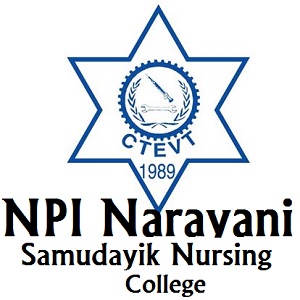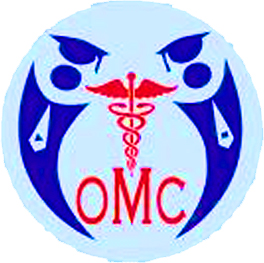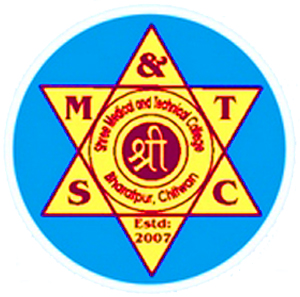Overview
Bachelor of Science in Nursing (BSc Nursing) Program at CMC, Chitwan
The Bachelor of Science in Nursing (BSc Nursing) program at Chitwan Medical College (CMC), affiliated with Tribhuvan University (TU), is a comprehensive four-year program designed to prepare nursing professionals who can excel as care providers, educators, researchers, and middle-level managers in hospital and community settings. The program emphasizes theoretical knowledge, practical skills, and compassionate care to meet the dynamic needs of healthcare systems.
Program Duration
The BSc Nursing program spans four academic years, which include:
-
Three years of coursework Covering integrated health sciences, nursing theories, community health, midwifery, and management sciences.
-
One year of practical training: Focused on clinical rotations, community outreach, and research projects.
Eligibility Criteria
To apply for the BSc Nursing program, candidates must fulfill the following criteria:
-
Passed 10+2 Science or equivalent with Physics, Chemistry, and Biology, achieving at least 50% aggregate marks or CGPA 2.4.
-
For candidates with Health Science Proficiency Certificates or Diplomas, equivalence to Grade 12 Science is required, along with registration in the relevant professional council.
-
Foreign candidates must fulfill equivalent qualifications and provide the necessary documentation.
Admission Process
The admission process includes:
-
Entrance Examination:
-
Conducted by the Medical Education Commission (MEC).
-
Format: Multiple-choice questions with negative marking (0.25 deduction per incorrect answer).
-
Minimum passing requirement: 50th percentile.
-
Document Submission:
-
Academic certificates, transcripts, and character certificates.
-
Citizenship or passport.
-
Admit card for the entrance examination.
-
Equivalence certificate for foreign qualifications.
-
Merit-Based Selection:
-
Admission is granted based on merit ranking in the entrance examination.
Course Outline
The BSc Nursing program is divided into four years, each covering essential nursing and healthcare topics.
First Year
-
Integrated Health Sciences I & II (Theory & Practical)
-
Fundamentals of Nursing (Theory & Practical)
-
Community Health Nursing (Theory & Practical)
-
Nutrition and Diet Therapy
Second Year
-
Adult Nursing I & II (Theory)
-
Geriatric Nursing (Theory & Practical)
-
Psychiatric Nursing (Theory & Practical)
-
Nursing Concepts
-
Social and Behavioral Sciences
Third Year
-
Midwifery I & II (Theory & Practical)
-
Child Health Nursing (Theory & Practical)
-
Family and Reproductive Health Nursing (Theory & Practical)
Fourth Year
-
Management and Health Economics
-
Management Practicum
-
Educational Science
-
Education Practicum
-
Research and Biostatistics
-
Research Practicum
Subjects Offered
-
Integrated Health Sciences
-
Fundamentals of Nursing
-
Community Health Nursing
-
Adult Nursing
-
Geriatric Nursing
-
Psychiatric Nursing
-
Midwifery
-
Child Health Nursing
-
Family and Reproductive Health Nursing
-
Management and Health Economics
-
Educational Science
-
Research and Biostatistics
Program Objectives
The program aims to:
-
Develop skilled nursing professionals equipped to provide quality care in diverse healthcare settings.
-
Train students in health promotion, disease prevention, and patient-centered care.
-
Foster leadership and management skills for middle-level healthcare roles.
-
Encourage research and evidence-based practices in nursing.
-
Promote ethical and compassionate patient care.
Teaching Methodology
The BSc Nursing program employs an integrated teaching methodology that combines classroom lectures, laboratory practice, clinical rotations, and community-based learning. Emphasis is placed on interactive learning, case studies, problem-solving, and evidence-based approaches to healthcare. Students are guided by experienced faculty and gain hands-on experience through supervised clinical training and community outreach activities.
Learning Outcomes
Upon completing the BSc Nursing program, graduates will be able to:
-
Provide comprehensive nursing care across various healthcare settings.
-
Apply evidence-based practices in clinical decision-making.
-
Demonstrate leadership and management skills in nursing.
-
Conduct health education and promotion activities in communities.
-
Engage in research to contribute to the advancement of nursing science.
-
Collaborate effectively with multidisciplinary healthcare teams.
Future Scope
Graduates of the BSc Nursing program have diverse opportunities in:
-
Clinical practice in hospitals, clinics, and community health centers.
-
Public health roles focus on community healthcare and education.
-
Academic positions as nursing educators or researchers.
-
Advanced studies, including Master's programs in nursing and healthcare management.
Career Prospects
-
Registered Nurse: Work in hospitals, clinics, or private practices.
-
Community Health Nurse: Provide care and health education in rural or urban communities.
-
Nurse Educator: Teach and mentor nursing students.
-
Research Nurse: Conduct studies to improve patient care and healthcare systems.
-
Healthcare Manager: Oversee nursing departments and healthcare operations.
Scholarship Opportunities
Scholarships are available based on:
-
Merit: For top-performing candidates in entrance examinations.
-
Need-based: For economically disadvantaged students.
-
Reserved categories: As per government policies, including provisions for women, minorities, and marginalized groups.
Fees Structure
The tuition fees for the BSc Nursing program are determined by the Medical Education Commission (MEC) and are subject to periodic updates. Detailed information is available during the admission process.
Extracurricular and Co-Curricular Activities
Students participate in various activities such as health camps, awareness campaigns, and community outreach programs. These initiatives enhance teamwork, leadership, and communication skills while fostering a sense of social responsibility.
Real-World Application
The program ensures extensive practical training, preparing students to address real-world healthcare challenges. Through clinical rotations and community health initiatives, students gain hands-on experience in patient care, health promotion, and disease prevention, enabling them to excel in diverse healthcare settings.
Sustainability and Social Impact
The BSc Nursing program integrates sustainability principles by promoting eco-friendly practices in healthcare delivery. Community outreach initiatives emphasize equitable access to healthcare, empowering students to address health disparities and contribute to societal well-being.
Skill Development
The program equips students with technical and soft skills, including advanced clinical techniques, patient management, critical thinking, and effective communication. Emphasis is placed on ethical decision-making, teamwork, and adaptability to prepare graduates for dynamic healthcare environments.
Global Perspective
The curriculum aligns with international nursing education standards, enabling graduates to pursue global career opportunities. Participation in international conferences and exchange programs broadens students' understanding of cross-cultural healthcare practices and global health challenges.
Facilities and Support
Chitwan Medical College provides state-of-the-art facilities, including:
-
Modern nursing laboratories
-
Comprehensive library resources
-
Well-equipped clinical training centers
-
Dedicated faculty and mentorship programs
Why Choose the BSc Nursing Program?
The BSc Nursing program at CMC offers rigorous academic training and practical experience. The curriculum is designed to produce competent, compassionate, and socially responsible nursing professionals who can adapt to the evolving demands of healthcare systems.
Is the BSc Nursing Program Right for You?
This program is ideal for individuals passionate about patient care, public health, and nursing education. Suppose you aspire to make a meaningful impact in healthcare and are dedicated to excelling in this challenging yet rewarding field. In that case, the BSc Nursing program is the right choice for you.
What is the Future of the BSc Nursing Program?
With an increasing global demand for skilled nursing professionals, the BSc Nursing program offers a promising future. Graduates can explore opportunities in clinical practice, public health, education, and research, contributing to the advancement of global healthcare systems.
How to Improve Your Study of Nursing Education
To excel in nursing education, create a structured study plan that balances theoretical learning, practical training, and self-care. Participate actively in clinical rotations, seek mentor feedback, and engage in group discussions. Stay updated on advancements in nursing science through journals and conferences. Practice time management and maintain a healthy routine to optimize your learning experience.
Conclusion
The BSc Nursing program at Chitwan Medical College is a gateway to a fulfilling career in healthcare. With a robust curriculum, experienced faculty, and comprehensive training, students are well-equipped to excel as nursing professionals. By fostering academic excellence, ethical practices, and a commitment to community health, the program prepares graduates to make meaningful support to the healthcare sector and society.


















